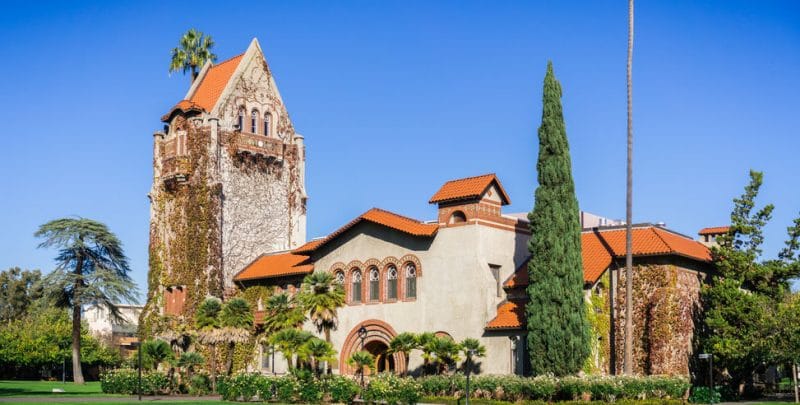
The Steinbeck Fellows Program is a one-year fellowship for emerging writers of any age and background to pursue a significant writing project while in residence at San José State University. The fellowship provides a stipend of $10,000, as well as the opportunity to interact with other writers, faculty and graduate students and share work in progress by giving a public reading once each semester during the fellowship. The fellowship is for creative writers, including fiction, drama, creative nonfiction, and biography.
We talked to Jill Logan, who recently completed her Steinbeck Fellowship in the Bay Area, to learn more about the program and get some application tips.
1. What inspired you to apply for the Steinbeck Fellowship?
When I decided to apply for the fellowship, I was already living in the Bay Area and teaching as an adjunct at San Jose State, where the Steinbeck Program is housed. I’d known about the program for several years, and everything came together once I found myself in a place where I could take advantage of the fellowship without having to pack up and move. While some Fellows do move out here while they hold the fellowship, such moves are often much less feasible for folks like myself with young children. When I applied, I’d been at work on my novel The Fracking for several years, so I had a pretty clear vision of the book when I applied for the fellowship – and I knew that the one thing I really needed was time to finish it.
2. What have you enjoyed most about your fellowship so far?
I’ve enjoyed getting to meet and talk with the other Fellows. It’s great to have others who are pursuing “the writing life” — to celebrate and commiserate about this strange undertaking we’re all pursuing.
I really appreciate that the fellowship seeks to protect our time so that we can use it just for writing. We gave one panel discussion and one public reading during the year, but other than that, there were no outside obligations.
The vision of Dr. Martha Heasley Cox, who established the fellowship, was to do for other writers what Steinbeck’s father had done for him: to buy them some time to write based solely on a belief in their talent. As an adjunct English instructor, it’s incredibly difficult to carve out writing time during the school year, especially now that I have a child. So, being able to teach a lighter course load has afforded me more time to work on finishing the novel, and I’m hoping to have it completed this summer. The time is such a gift.
3. What tips would you give others applying to the Steinbeck Fellowship?
You submit a proposal and a writing sample and it’s important to note that the fellowship is only open to fiction writers and Steinbeck scholars. I think it’s always good advice to think about why you’re a good match for a particular fellowship and argue that in your proposal. For me, there were several aspects of my novel that lined up with Steinbeck: an environmental concern at the heart of it and an Oklahoma setting during the 1930s. But I also want to point out that there doesn’t have to be an overt connection to Steinbeck; there are six fellows this year and I’d say that our writing styles and themes are all quite different.

Jill Logan has an MFA in Fiction from the Iowa Writers’ Workshop, where she was a Teaching Fellow. Her fiction and essays have appeared in Zyzzyva, Michigan Quarterly Review, Crazyhorse, Alaska Quarterly Review, and elsewhere and have won a Writers at Work Fellowship and the Katherine Anne Porter Award for Fiction. She’s a Lecturer at San José State University and currently at work on her novel The Fracking.
Interested in applying? Bookmark the Steinbeck Fellows Program to your ProFellow account.
© Victoria Johnson 2019, all rights reserved.